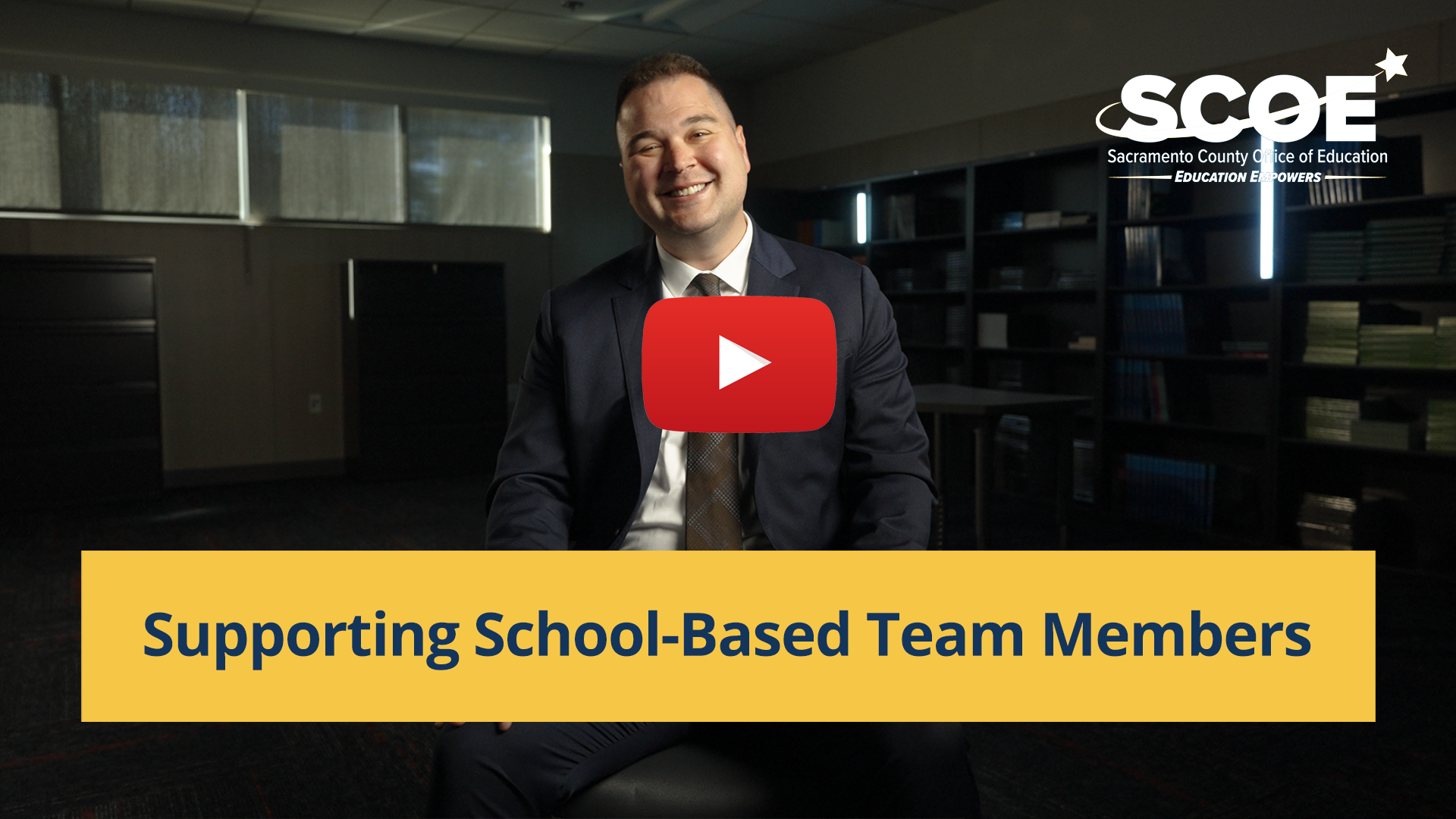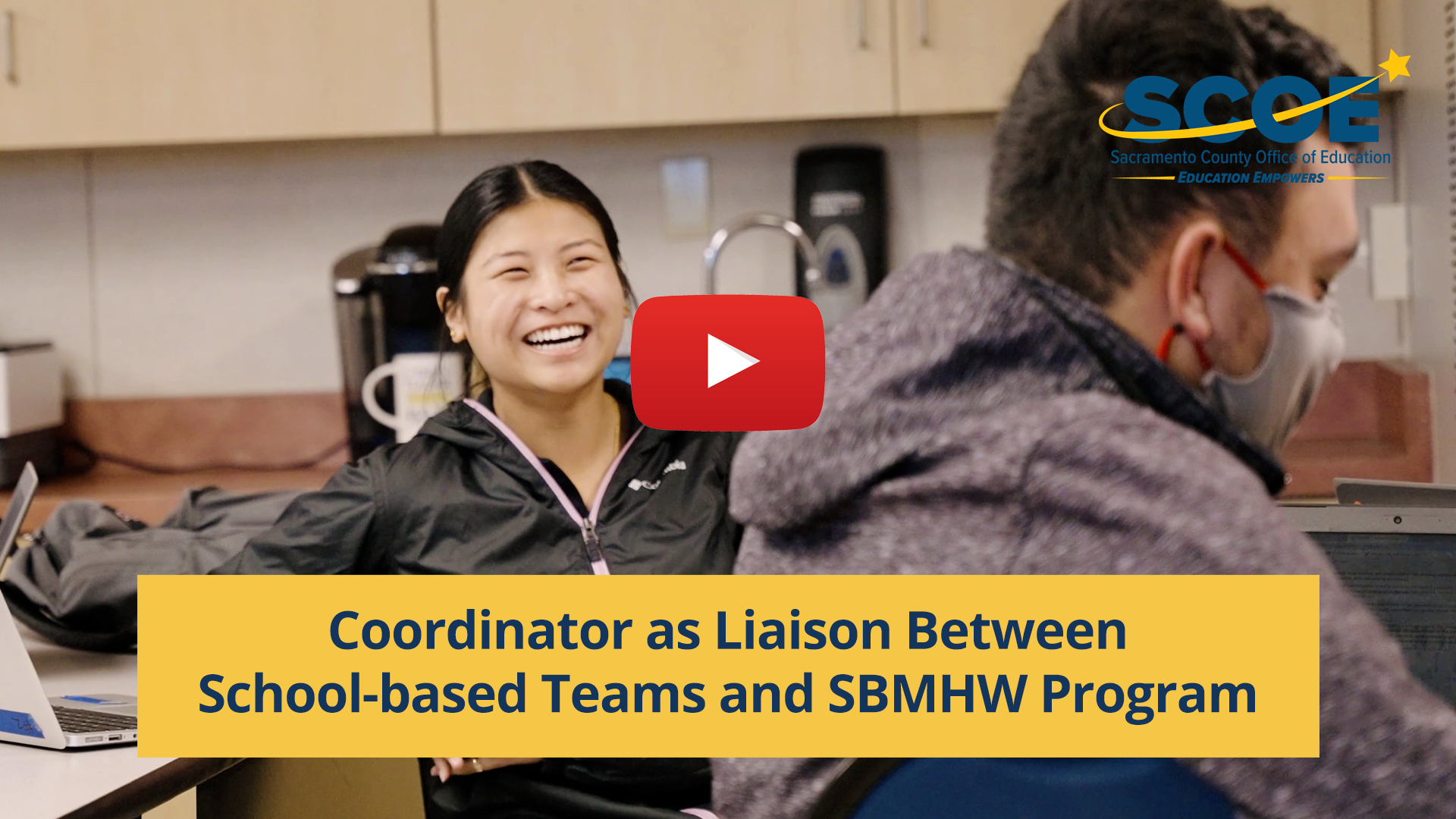
Coordinator Role
Phase 1: First 6 Weeks of School
Training Resource Home > Coordinator > Phase 1: First 6 Weeks of School
Phase Overview
In this training phase for the Coordinator role, the focus will be on establishing and nurturing initial relationships with assigned district teams and regional team members. Building strong connections with supervisees will also be a priority, along with providing effective support to assigned school sites as clients. A key goal will be to create a structured approach to support these relationships, ensuring successful collaboration and client-focused assistance throughout the phase.
Phase Goals/Objections
Establish initial relationships and connections with assigned district teams
Develop relationships with regional team members
Develop relationships with supervisees
Provide support to assigned schools sites as clients
Establishing Relationships and Connections
Begin to develop relationships with SCOE-based and school site team members. Schedule introductions with assigned supervisees, and meet with key school leadership and staff to conduct Initial Integration Check-Ins ensuring important integrations items including mandated reporting, billable encounters, referral system, COST, and confidentiality procedures are in place.
-
• Connect with established coordinator(s) for a 1:1 in the first two weeks. Discussion topics to include:
○ Personal introductions
○ Understanding and experience with SBMHW
○ Insight into documentation and other program protocols
• Schedule individual introductions with regional team members
• Meet with Principal, Vice Principal, Clinicians, and Clinician IIs at each assigned school site to discuss:
○ Program and site protocols of mandated reporting and clinician safety
○ HIPAA & FERPA
○ Multidisciplinary systems
○ Mandated reporting
○ COST structure
○ ABC reports
○ Referral system
○ Billable encounters
○ Confidentiality practices
○ Clinical supervision model and Associate requirements
○ Access to student information system (SIS)
○ Confirm confidentiality of space, locked door, phone line and access to keys
○ Emergency notification system on site (email, text, safety concerns, etc)
○ Role and expectations
○ District’s Crisis Protocols
○ Name of person at school site who is CPR certified
Support Schools as Clients
Explore building relationships with principals and school administration. Learn to provide training calendars, introduce the program at staff meetings, and attend district events. Discover how to schedule monthly site visits and understand regional school systems, including COST, referral systems, and service providers.
-
• Build relationships with principals and school administration
• Provide site administrators with a calendar of SBMHW trainings and meetings
• Attend site staff meetings and introduce program and clinician to school staff (specify if clinician is an Associate Clinician requiring supervision according to BBS guidelines)
• Attend district and school site events
• Schedule and visit site monthly (include of family navigators, clinician IIs, and Career Pipeline as needed)
• Understand current systems of regional school sites (COST, referral system, teaming, additional service providers serving the site)
• Attend COST meetings to gain an understanding of how to integrate the SBMHW care team with the school system
• Create a calendar of key dates for each site or district (open houses, back to school nights etc) and coordinate coverage
• Explore existing and potential collaborations with community partners

Clinician Oversight
Provide oversight to clinicians by scheduling and facilitating monthly 1:1s with and encouraging clinician shadowing opportunities. Ensure clinicians attend documentation training, understand crisis protocols, and review emergency expectations. Collaborate on chart reviews and address school-specific safety concerns.
-
• Schedule and facilitate 1:1s with clinicians monthly
• Request and review clinicians’ office hours schedule to ensure program fidelity
• Encourage clinicians to connect with a partnering clinician(s) within their district or within proximity for shadowing opportunities
• Ensure regional clinicians are invited to upcoming documentation training, as optional or required attendants
• Collaborate with each clinician to ensure understanding of crisis protocols and discuss their role in various crises that may occur at school site
• Complete chart reviews, in collaboration with clinician II to provide support
• Review standard emergency expectations with clinicians discussing:
○ How clinicians will receive emergency notifications while on site (email, text, etc.)
○ Other safety concerns specific to school site
Team Support
Provide support to clinicians by ensuring each clinician has what they need at their school site to successfully fulfill their responsibilities. Schedule small team meetings and share the Outlook calendar with team members, including clinician II, coordinator, and family navigator.
-
• Ensure each clinician has been assigned a confidential space to meet with clients including:
○ Entry door(s) capable of being locked
○ Functioning hardwired phone line
• Calendar site visits for small team
• Share Outlook calendar with team (clinician II, coordinator, and family navigator)
Role & Program Development
Learn core components, collaborate with other coordinators to support ongoing development and alignment with clinical practices, and participate in regional team meetings, SBMHW team and collaborative meetings, professional development, training sessions, and regional events.
-
• Learn Core Components
• Collaborate with other coordinators to support the continuous development and alignment with clinical practices
• Attend and collaborate in regional team meetings, SBMHW team and collaborative meetings, professional development and training, and events within the region







